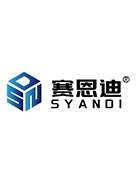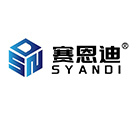
Innovations in Machining: Exploring Revolutionary Machine Tool Technologies
项目类型:
应用区域:
使用产品:
安装型号:
Innovations in Machining: Exploring Revolutionary Machine Tool Technologies
The manufacturing industry is continuously evolving, driven by the relentless pursuit of efficiency, precision, and productivity. At the heart of this evolution are machine tools, the backbone of machining processes that shape raw materials into finished products. In this article, we will explore the most exciting innovations in machining and how they are revolutionizing the way we approach manufacturing.
Table of Contents
- Understanding Machine Tools: The Foundation of Modern Manufacturing
- Emerging Technologies in Machining
- CNC Machining: The Rise of Automation
- Additive Manufacturing: Transforming Traditional Methods
- Smart Machining: The Internet of Things (IoT) in Manufacturing
- Benefits of Modern Machine Tools
- Sustainability in Machining: Eco-Friendly Innovations
- The Future of Machining: Trends to Watch
- Case Studies: Successful Implementations of Modern Technologies
- Frequently Asked Questions
Understanding Machine Tools: The Foundation of Modern Manufacturing
Machine tools play a pivotal role in the manufacturing sector. They encompass a wide range of devices used to shape or finish metal or other materials through processes like cutting, grinding, and drilling. Understanding machine tools is crucial for grasping the innovations that are redefining the industry.
The Role of Machine Tools in Manufacturing
Machine tools are integral to the manufacturing process as they directly influence the efficiency, accuracy, and quality of the finished product. Advanced technologies in this field enable manufacturers to produce complex geometries and maintain tight tolerances, which are essential for today’s sophisticated applications.
Emerging Technologies in Machining
CNC Machining: The Rise of Automation
Computer Numerical Control (CNC) machining has revolutionized the manufacturing landscape by automating the control of machining tools via computer systems. This automation results in enhanced productivity and consistency in producing parts.
Key Advancements in CNC Technology
Recent advancements in CNC machining include:
- Increased Speed and Precision: Modern CNC machines are equipped with faster processors and high-precision components, allowing for quicker cycles and more accurate repeatability.
- User-Friendly Interfaces: The development of intuitive interfaces has simplified programming, enabling even those without extensive training to operate CNC systems effectively.
- Multi-Axis Machining: The introduction of 5-axis machining capabilities has expanded the range of complex parts that can be produced, significantly improving production capabilities.
Additive Manufacturing: Transforming Traditional Methods
Additive manufacturing, commonly known as 3D printing, represents a significant shift in how products are made. This process allows for the creation of complex geometries and structures that were previously impossible with traditional machining methods.
Benefits of Additive Manufacturing
Additive manufacturing offers numerous benefits:
- Reduced Material Waste: By adding material layer by layer, additive manufacturing minimizes waste compared to subtractive methods, which cut away material.
- Customization: Parts can be easily customized to meet specific requirements, making this technology ideal for industries requiring bespoke solutions.
- Rapid Prototyping: The ability to quickly create prototypes accelerates the design process, allowing for faster iterations and innovations.
Smart Machining: The Internet of Things (IoT) in Manufacturing
The integration of IoT technologies in machining is leading to smarter manufacturing processes. Smart machining involves connecting machines to the internet, enabling real-time data monitoring and analysis.
Advantages of Smart Machining
Smart machining provides substantial advantages:
- Predictive Maintenance: Sensors can monitor machine performance and predict failures before they occur, reducing downtime and maintenance costs.
- Enhanced Production Monitoring: Real-time data allows manufacturers to track production metrics, identify inefficiencies, and optimize workflows.
- Improved Quality Control: Smart machines can implement quality checks during production, ensuring higher standards and reducing scrap rates.
Benefits of Modern Machine Tools
The adoption of modern machine tools offers numerous benefits that significantly impact manufacturing efficiency, quality, and overall competitiveness.
Enhanced Efficiency and Productivity
Modern machine tools are designed with advanced features that streamline production processes. Automation, high-speed cutting, and improved tooling systems contribute to faster turnaround times and increased output.
Improved Quality and Precision
With innovations in machining technology, manufacturers can achieve higher levels of precision. The use of CNC machines, advanced sensors, and quality control systems ensures that parts meet stringent specifications.
Cost Reduction
While the initial investment in modern machine tools may be higher, the long-term savings realized through reduced labor costs, material waste, and enhanced productivity often outweigh these initial expenses.
Sustainability in Machining: Eco-Friendly Innovations
As the global focus on sustainability intensifies, the machining industry is also making strides toward eco-friendly practices. Innovations in this field are aimed at reducing environmental impact while maintaining efficiency and productivity.
Eco-Friendly Materials and Processes
Adopting sustainable materials and processes is essential for reducing the manufacturing sector's carbon footprint. Some key innovations include:
- Biodegradable Cutting Fluids: These environmentally friendly alternatives to conventional cutting fluids minimize harmful waste while maintaining effective lubrication.
- Energy-Efficient Machines: Modern machines are designed to consume less energy, contributing to lower operational costs and reduced environmental impact.
Recycling and Waste Reduction
The implementation of recycling programs and waste reduction initiatives in machining processes contributes to sustainability. Manufacturers are increasingly focusing on reusing materials and minimizing scrap through efficient machining practices.
The Future of Machining: Trends to Watch
As technology continues to advance, several trends are expected to shape the future of machining:
Artificial Intelligence in Manufacturing
AI and machine learning are set to revolutionize manufacturing by enabling smarter decision-making and adaptive machining processes. These technologies can predict outcomes, optimize workflows, and enhance quality control.
Integration of Virtual and Augmented Reality
Virtual and augmented reality technologies are being utilized for training purposes and design visualization. These tools can facilitate better understanding and collaboration among teams, ultimately leading to improved manufacturing outcomes.
Continued Focus on Automation
Automation will remain a key driver of efficiency, with advancements in robotics and AI enhancing the capabilities of machine tools. As manufacturers seek to improve productivity and reduce labor costs, automated solutions will become increasingly prevalent.
Case Studies: Successful Implementations of Modern Technologies
Real-life examples provide valuable insights into the effective implementation of innovative machining technologies. Here are a few notable case studies:
Case Study 1: Automotive Industry
A leading automotive manufacturer implemented CNC technology to enhance its production line. The result was a 30% increase in productivity and a significant reduction in part defects, demonstrating the potential of automation in large-scale manufacturing.
Case Study 2: Aerospace Manufacturing
An aerospace company adopted additive manufacturing to create complex components that were previously challenging to produce. This innovation reduced lead times by 50% and allowed for greater design freedom.
Frequently Asked Questions
1. What are machine tools?
Machine tools are devices used to shape or finish materials, primarily metals, through various machining processes such as cutting, grinding, and drilling.
2. How has CNC machining changed manufacturing?
CNC machining has automated the manufacturing process, leading to increased speed, precision, and efficiency in producing parts.
3. What is additive manufacturing?
Additive manufacturing, or 3D printing, is a process that involves creating parts layer by layer, allowing for complex geometries and customized solutions.
4. How does smart machining improve production?
Smart machining integrates IoT technology to monitor machine performance, enabling predictive maintenance and real-time data analysis that enhances production efficiency.
5. What are some eco-friendly practices in machining?
Eco-friendly practices in machining include the use of biodegradable cutting fluids, energy-efficient machines, and recycling initiatives to minimize waste.
Conclusion
The innovations in machining technologies are not merely advancements; they represent a seismic shift in how manufacturers approach production. With the rise of CNC machining, additive manufacturing, and IoT integration, the future of manufacturing is brighter and more efficient than ever before. As these technologies continue to develop, industries must adapt and embrace these changes to remain competitive and sustainable. By leveraging these revolutionary machine tool technologies, manufacturers can achieve unprecedented levels of precision, efficiency, and environmental responsibility, ultimately shaping the future of the industry.
Summary:
Innovations in Machining: Exploring Revolutionary Machine Tool Technologies The manufacturing industry is continuously evolving, driven by the relentless pursuit of efficiency, precision, and productivity. At the heart of this evolution are machine tools, the backbone of machining processes that shape raw materials into finished products. In this article, we will explore the most exciting innovati
Author:
Source:
Date:
2025-06-20
Other information





